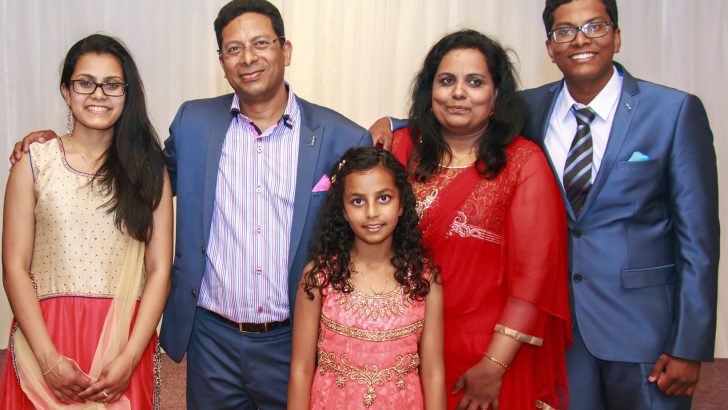Dr Lazarus Gidolf
An 11-year-old boy comes home crying from school. His older sister asks what happened. “Teacher called me names!” he replies. “What did he call you?” she asks angrily. “He called me ‘deacon’ and the whole class bullied me afterwards… I am not going back… they are all calling me ‘deacon’…”
Anger moved to surprise and then to a sort of emotion the boy could hardly read. “Oh my dear, it is a holy word you know… you should be happy about that… A deacon is like a priest… a word that the Lord loves…”
It continues to perplex me how such an ‘alien’ word came to my teacher’s mouth spontaneously, but my older sister knew this word because she was the daughter of a sacristan.
When I was offered a job from the South Eastern Health Board to join the Child Psychiatry Services in Clonmel, Co. Tipperary many people asked me “Why Ireland?” “I don’t know, but this is where I got a job,” I replied. But, one thing I strongly believe, if I had went to a different place I would not have become an ordained minister for the Church; perhaps because of my experience in Clonmel, especially with the Indian community.
Consecrated
“Before I formed you in the womb I knew you, And before you were born I consecrated you…” Jeremiah 1:5 is quite significant here. I was born in 1967, the same year in which Pope Paul VI published his Apostolic Letter Sacrum Diaconatus Ordinem, announcing the restoration of the permanent diaconate in the Catholic Church.
It took decades for the Irish Church to start ordaining permanent deacons in this part of the world. It happened after my coming to Ireland and settling in, and also after many episodes of witnessing God’s presence, especially at the Indian prayer community in Clonmel.
Some questions still remain unanswered. Why did the bishop wait until 2010 to announce this in our diocese? Why didn’t it happen until I had decided to handover the leadership of the Indian prayer community to more deserving hands? Above all, why me? A non-national whose first language is not English, who is quite naïve about the Irish way of doing things.
I am still struggling to find my feet in the ministry as I have no templates to start with nor have any role models to follow in the diaconal ministry. When a sacristan asked me sharply, “Who asked you to come for this Mass?” I was lost for words, though my mind was pushing me to say “The Lord asked me to…” I was shocked at this blunt question because I was formally appointed by the bishop. This may be the plan of the Lord, preparing me to face even more bitter surprises coming my way or may be to strengthen my immunity levels. But, the mystery still remains… why me? There were more applicants who were more talented, dedicated and intelligent than me… why only me then? Perhaps, the Lord is seeking only fools and donkeys to serve him in this ministry? In my case, this seems to be the truth!
From my childhood I wanted to become a priest because they were my role models. But, when my eldest brother left the seminary before his diaconal ordination, it shook the whole family and took many years for the family to come to terms with. So, going for seminary formation to become a priest was out of question in my case. But I continued my collaboration with priests, especially with the Jesuits during my school and college years.
To me, the concepts like liberation theology, option for the poor, social justice, human rights, etc. seemed to be the only core ideologies during those times, until I started studying philosophy in college as a major subject. Personalities like Fr Samuel Rayan, Fr Tony de Mello, Julius Nyerere, etc. were my super heroes. But now, when I am in the Lord’s ministry, I feel that his teachings transcend all theories; his love marvels! He continues to amaze us.
I am an ordained minister now, a cleric in the community who represents Jesus the servant. A different role and a different identity. People are looking at me wondering what this man is and what he does. They are still surprised to see a family man wearing a clerical collar and preaching from the ambo, raising the chalice, doing baptisms and funerals, blessing people, vehicles, houses, shops, etc. Some are very confused about how to address me. I ask them to call me Lazarus, but they are more confused and some do find it difficult to address me so. But, for me what is important is to serve the Lord’s people and witness the Gospel. The road to Calvary is not too short and not too easy. But to continue as his diákonos, to walk as his donkey, is the greatest blessing ever!


 Dr Lazarus Gidolf with his family.
Dr Lazarus Gidolf with his family. 